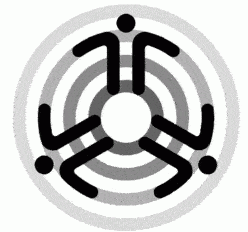The Computer Misuse Bill, 2000 was introduced in the Senate in October 2000 in the House of Representatives. It was passed in both the House of Representatives and the Senate in October 2000.
The main purpose of the Computer Misuse Bill 2000 is to prohibit the unauthorised access, use of or interference to any program or data held in a computer and to a computer itself.
The Bill therefore seeks to enhance computer security by giving protection to the integrity of computer systems and by providing stringent penalties for specified computer related offences.
The Computer Misuse Bill also provides enhanced penalties in case where the offence results in damage, which includes financial loss, injury, or harm.
Some of the points/issues raised by the TTCS :
- How does one ensure that computer data presented as evidence in court was the same evidence that was originally collected? Computer logs are text files and can be easily modified.
- Re: Clause 16, Police or authorised persons can contaiminate data while conducting their investigations. What is to prevent or protect against such problems?
- It is possible for someone to easily frame another person for a computer crime.
- The proposed Bill defines various computer-related offences as criminal acts. This means that the case will be tried before a jury. Would such a jury understand the technical aspects of the case?
- What happens to minors (persons under 18) under this law?
- Re: Clause 12,13, If a Trinbagoian runs a e-commerce site hosted in the U.S and a offence is committed against the site, causing momentary loss to the Trinbagoian. Under what jurisdiction is the crime prosecuted? Trinidad and Tobago The U.S?
- Email viruses such as the Love Bug can be spread by unwitting users to other computers including protected computers as defined in clause 9. Would such a person be liable under clause 9?
- Re: Access code in Clause 8, Computer hardware and software are sold with a default password that should be changed by the owners when they install it. If they don’t change the password, and an outside person notices this and notifies the owner of the hardware/software, would the someone be committing an offence under clause 8?
- Re: Clause 17, Arrest by police officer (without warrant) is controversial. This clause was removed from the final act.
- View the Computer Misuse Bill, 2000 (PDF ; 112K)
- View the Computer Misuse Act, 2000 (PDF ; 39K)
- Trinidad and Tobago Parliament’s website. Contains the transcripts of the speakers in both the House of Representatives and the Senate and other information as the Computer Misuse Bill, 2000 went through Parliament.

